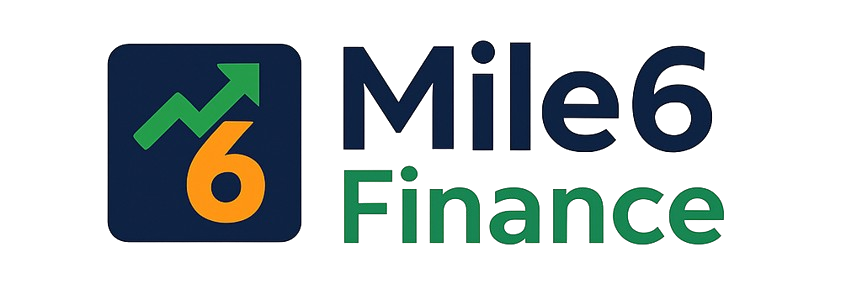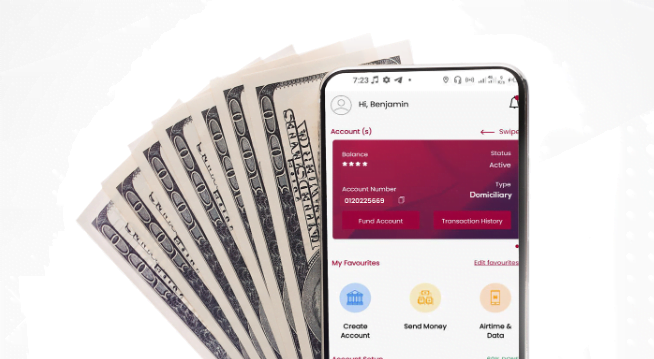Have you ever received an international payment notification and winced at the conversion rate? Or have you dreamt of online shopping sprees without currency hiccups? Then a dollar account, also known as a domiciliary account, might be your key to unlocking financial freedom in Nigeria.
Think of it as a safe haven for your foreign currency, a shield against inflation, and a convenient gateway to global transactions. Whether you’re a freelancer receiving overseas payments, a student expecting foreign funds, or simply an ambitious traveler, holding a dollar account opens up a world of possibilities.
But navigating the landscape of domiciliary accounts in Nigeria can be confusing. Fear not! This comprehensive guide will be your step-by-step roadmap to opening your own dollar account, demystifying the process, and unlocking your financial potential.
Get ready to dive into everything you need to know, from the benefits of going greenback to the practical steps of setting up your account. So buckle up, and let’s embark on this journey towards financial empowerment!
What is a domiciliary account?
Imagine having a bank account that can hold not just your local currency but also foreign currencies like USD, EUR, or GBP. That’s essentially what a domiciliary account is—a bank account designated for holding and transacting in one or more foreign currencies. It’s like having a gateway to the global financial world right from your own bank in Nigeria.
Think of it as a secure vault for your international finances. You can use it to:
- Receive foreign payments: Whether you’re a freelancer earning in USD, a student getting tuition assistance in EUR, or a business receiving international fees, a domiciliary account makes it easy to collect your funds directly.
- Make international transactions. Say goodbye to the hassles of currency exchange bureaus. With your domiciliary account, you can pay for online purchases, investments, or international travel expenses directly in foreign currencies, often at more favorable rates.
- Hedge against inflation: Local currencies can fluctuate, but major foreign currencies like USD tend to be more stable. A domiciliary account can help protect the value of your savings against local inflation.
- Enjoy convenient travel: Forget carrying wads of cash or scrambling for currency exchange abroad. Use your domiciliary account debit card for purchases and withdrawals, keeping your finances secure and readily accessible.
In a nutshell, a domiciliary account offers Nigerians a world of financial flexibility and convenience. It’s like having a financial bridge connecting you to the global economy.
Here are some additional points to keep in mind:
- Different banks in Nigeria offer varying types of domiciliary accounts, some with minimum opening balances or transaction fees.
- Domiciliary accounts are subject to specific regulations by the Central Bank of Nigeria (CBN), so it’s important to choose a reputable bank and understand the applicable rules.
- With careful planning and responsible use, a domiciliary account can be a valuable tool for managing your finances in an increasingly interconnected world.
ALSO READ: Is Piggyvest’s Save & Invest Right for You? (2024 Review)
I hope this explanation gives you a clear understanding of what a domiciliary account is and how it can benefit you. If you have any further questions, feel free to ask in the comment section below!
Benefits of Opening a Domiciliary Account in Nigeria (Dollar Account):


Smoother International Transactions:
- Receive foreign income effortlessly: Freelancers, students, and businesses can deposit earnings directly in euros, dollars, or pounds without exchange hassles.
- Pay for online purchases and subscriptions: Access global marketplaces and streaming services easily without worrying about fluctuating exchange rates.
- Invest in international markets: diversify your portfolio and tap into lucrative options beyond Nigerian assets.
- Send money abroad conveniently: Transfer funds to family and friends overseas at more competitive rates and with less paperwork.
Enhanced Financial Security:
- Hedge against inflation: Protect your savings from naira devaluation by storing value in a relatively stable currency like the US dollar.
- Enjoy peace of mind. Reduce currency conversion risks and unforeseen fluctuations that can impact your budget.
- Plan for international travel: Hold funds readily available for future trips abroad without needing last-minute currency exchanges.
- Build a credit history in foreign currency. Open doors to future loans or mortgages abroad with a reliable international financial footprint.
Increased Convenience and Flexibility:
- Access international debit and credit cards: Make purchases and withdrawals directly in foreign currencies abroad without relying on cash exchange booths.
- Shop online with ease: avoid international transaction fees and enjoy seamless online shopping experiences from global retailers.
- Benefit from attractive interest rates: Earn higher returns on your savings compared to naira accounts, depending on your chosen bank and currency.
- Simplify tax documentation: streamline foreign income reporting and potentially benefit from preferential tax treaties with specific countries.
Overall, opening a domiciliary account in Nigeria offers a gateway to a world of financial opportunities and security. It empowers you to participate in the global economy with greater ease, manage your finances with confidence, and plan for a future beyond local currency limitations.
Remember, individual circumstances and needs may vary. Consider your financial goals and consult with a financial advisor before making any investment decisions.
How to Open a Domiciliary Account in Nigeria:

Ready to dip your toes into the world of dollar accounts? Here’s a clear and concise breakdown of the steps involved in opening one in Nigeria:
1. Choose your champion (Bank):
- Compare banks! Look for minimum deposits, fees, services offered, and online banking features that suit your needs.
- Ask friends and family about their experiences with different banks.
- Check online bank reviews for unbiased insights.
2. Gather your team (documents):
- Documents like a valid ID, proof of address, and income source verification (like salary slips or business registration) will be your trusted allies.
- Don’t forget your utility bills; they’ll help prove your residency.
- Some banks might request additional documents, so check their websites for specifics.
3. Head to the battlefield (the bank, that is):
- Fill out the application form with your trusty documents in hand. Accuracy is key—double-check everything!
- Submit your application and any required documents. Depending on the bank, this might happen in person or online.
- Pay the initial deposit amount; remember, banks have different minimums.
- Two reference forms need to be completed by current account holders,, which would be difficult for an average person.
4. Activate your weapon (the account):
- You’ll likely receive an account number and activation instructions via email or text.
- Visit the bank or follow the online instructions to activate your account.
- Boom! You’re ready to send, receive, and store your hard-earned dollars.
Bonus tips for a smooth victory:
- Research currency exchange rates to choose the best time to deposit your naira.
- Familiarize yourself with transaction fees and limits to avoid surprises.
- Explore online banking and mobile app features for easy account management.
Remember, your journey might differ slightly depending on the bank you choose. But with this roadmap, you’ll be well-equipped to navigate the process and confidently claim your financial fortress!
Frequently Asked Questions (FAQs):

1. What is the minimum opening balance required for a domiciliary account?
Minimum opening balances vary depending on the bank and account type. Some banks may require $100 or more, while others may not have a minimum threshold. It’s best to check with your preferred bank for specific requirements.
2. Are there any fees associated with opening or maintaining a domiciliary account?
Yes, most banks charge account maintenance fees, typically monthly or annually. There may also be transaction fees for deposits, withdrawals, and transfers. Carefully review the bank’s fee schedule before opening an account.
3. Can I deposit local currency (Naira) into my domiciliary account?
Yes, some banks allow Naira deposits into your domiciliary account, which will then be converted to the chosen foreign currency at the prevailing exchange rate. However, there may be conversion fees or limitations on the amount of Naira you can deposit.
4. Can I use my domiciliary account for international transactions?
Yes, a domiciliary account allows you to make and receive international payments. You can typically get a debit card that works abroad or use online banking to transfer funds.
5. Are there any tax implications for holding a domiciliary account?
Interest earned on your domiciliary account may be subject to tax, depending on the bank and your individual circumstances. It’s advisable to consult with a tax advisor for more personalized information.
6. What if I want to close my domiciliary account?
Closing a domiciliary account typically involves filling out forms and paying any outstanding fees. Some banks may also charge a closing fee. Check with your bank for their specific withdrawal or closure procedures.
7. Can I earn interest on my domiciliary account?
Yes, many banks offer interest on domiciliary accounts, although the rates may be lower than those offered on Naira accounts. Interest rates can vary depending on the bank, account type, and current market conditions.
8. What documents do I need to open a domiciliary account?
Required documents may include valid ID (international passport, national ID card), proof of address (utility bill, bank statement), and proof of income (employment letter, salary slip). Specific requirements can vary by bank, so it’s best to check with them directly.
9. Can I open a joint domiciliary account with someone else?
Yes, some banks allow joint ownership of domiciliary accounts. Each account holder may need to meet the individual requirements and provide the necessary documents.
10. What are the risks associated with holding a domiciliary account?
Currency fluctuations can lead to potential losses if the foreign currency depreciates against the naira. Additionally, there may be restrictions or limitations on how you can use your account based on local regulations.
Conclusion
Opening a domiciliary account in Nigeria (dollar account) can be a valuable step for anyone who receives international income, plans to travel abroad, or simply wants to hedge against currency fluctuations. This guide has laid out the steps you need to take, the benefits you can expect, and the questions you might have.
Remember, different banks offer different features and fees, so compare options before choosing the right account for you. With careful planning and proper documentation, you can unlock the numerous advantages of holding a dollar account and navigate your financial future with greater flexibility and stability.
As a freelancer who receives payments from overseas, I can personally attest to the convenience and peace of mind a domiciliary account provides. So, why wait? Take control of your finances and open a domiciliary account today!










